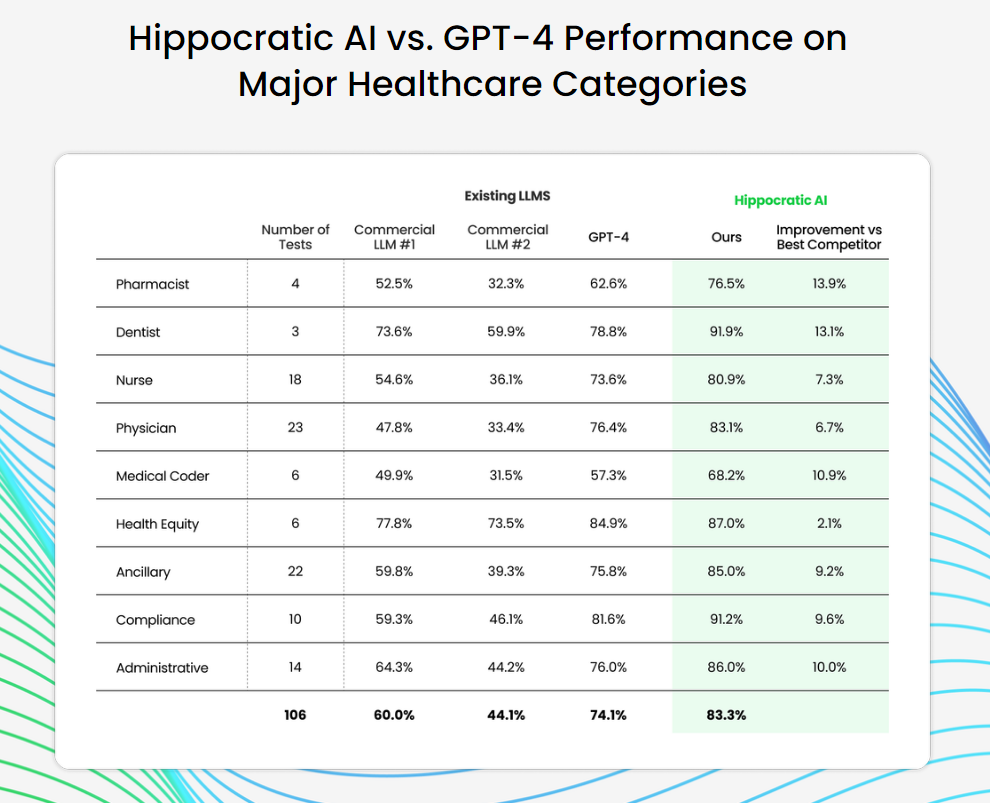Hippocratic AI just secured a stonking $50 million in seed funding from General Catalyst and Andreessen Horowitz, it’s using large language models to transform healthcare. Their goal is to make healthcare more accessible, equitable, and effective.
Hippocratic AI’s large language models are trained on a stonking dataset of medical text and code. This allows them to generate text, translate languages, write different kinds of creative content, and answer your questions in an informative way.
Hippocratic AI is currently working on a number of projects to improve healthcare. These projects include:
- Developing an AI-powered medical assistant that can help doctors with their work.
- Creating an AI-powered system that can diagnose diseases more accurately than humans.
- Developing an AI-powered drug discovery platform that can find new treatments for diseases.
Hippocratic AI is still in its early stages, but it has the potential to revolutionize healthcare. By using AI to augment human intelligence, Hippocratic AI can help to improve the quality of care for patients around the world.

Here are some of the ways that Hippocratic AI is already making a difference in healthcare:
- AI-powered medical assistants can help doctors with their work by providing them with information and insights that they would not otherwise have access to. This can help doctors to make better decisions about patient care.
- AI-powered systems that can diagnose diseases more accurately than humans can help to improve the early detection of diseases. This can lead to earlier treatment and better outcomes for patients.
- AI-powered drug discovery platforms can help to find new treatments for diseases more quickly and efficiently. This can lead to new and better treatments for patients.
Hippocratic AI is just one example of how AI is being used to improve healthcare. As AI technology continues to develop, we can expect to see even more innovative ways that AI can be used to improve the quality of care for patients around the world.
Here are some additional thoughts on how Hippocratic AI could impact healthcare in the future:
- AI could be used to create personalized treatment plans for patients. This would allow doctors to tailor treatment to each individual patient’s needs, which could lead to better outcomes.
- AI could be used to develop new forms of telemedicine. This would allow patients to receive care from doctors without having to travel to a doctor’s office, which could make healthcare more accessible for people who live in rural areas or who have difficulty traveling.
- AI could be used to improve the efficiency of healthcare systems. This could lead to lower costs for patients and insurers.
Overall, Hippocratic AI has the potential to make a stonking impact on healthcare. By using AI to augment human intelligence, Hippocratic AI can help to improve the quality of care for patients around the world.
If you are interested in learning more about Hippocratic AI, please visit their website at https://www.hippocraticai.com/.
